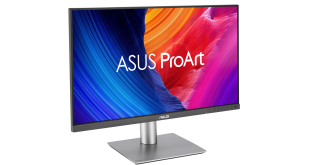
Asus produce a comprehensive range of motherboards which spans the performance and budget friendly ends of the market. We have already looked at some of their high performance Z77 motherboards including the Sabertooth Z77 and Republic of Gamers Maximus V Z77 Gene which are designed for users who want the ultimate performance. So we thought it was about time we got hold of one of their more cost effective motherboards to see how it fares.
Today we are going to look at the Asus P8Z77-V LX motherboard which is designed for users who are looking to build a powerful Z77 without breaking the bank. Even though the specification list isn't peppered with overclocking features, we are going to see how far we can push the Intel i7-3770K processor.
We are going to compare it to the much better featured, more expensive ASRock Z77 Extreme6 motherboard in our tests to give us a clearer idea of where Asus have potentially compromised to achieve such an affordable price point.
Key Features
- DIGI+ VRM Digital Power Design.
- USB3.0 Boost – Faster USB3.0 Transmission with UASP (170%).
- Network iControl.
- LucidLogix Virtu Universal MVP.
- GPU Boost.
 KitGuru KitGuru.net – Tech News | Hardware News | Hardware Reviews | IOS | Mobile | Gaming | Graphics Cards
KitGuru KitGuru.net – Tech News | Hardware News | Hardware Reviews | IOS | Mobile | Gaming | Graphics Cards




that gigabyte board is hard to beat on price. they can’t be making more than £10 from each sale.
Great looking board for the price, but I still cant believe the gigabyte price point.
Not bad, but id like two 16x slots for futureproofing.
I have bought two of these boards this week, as part of bundles from my local component shop in Coventry, and I have to say they are very solid. yeah I get what your saying about the lack of 2 x 16 Crossfire, but as I will never use it, the board is solid. Currently running mine with a 3570k and an NH-D14 at 4.5Ghz. Easy to set up as long as the 1st thing you do is update the Bios.